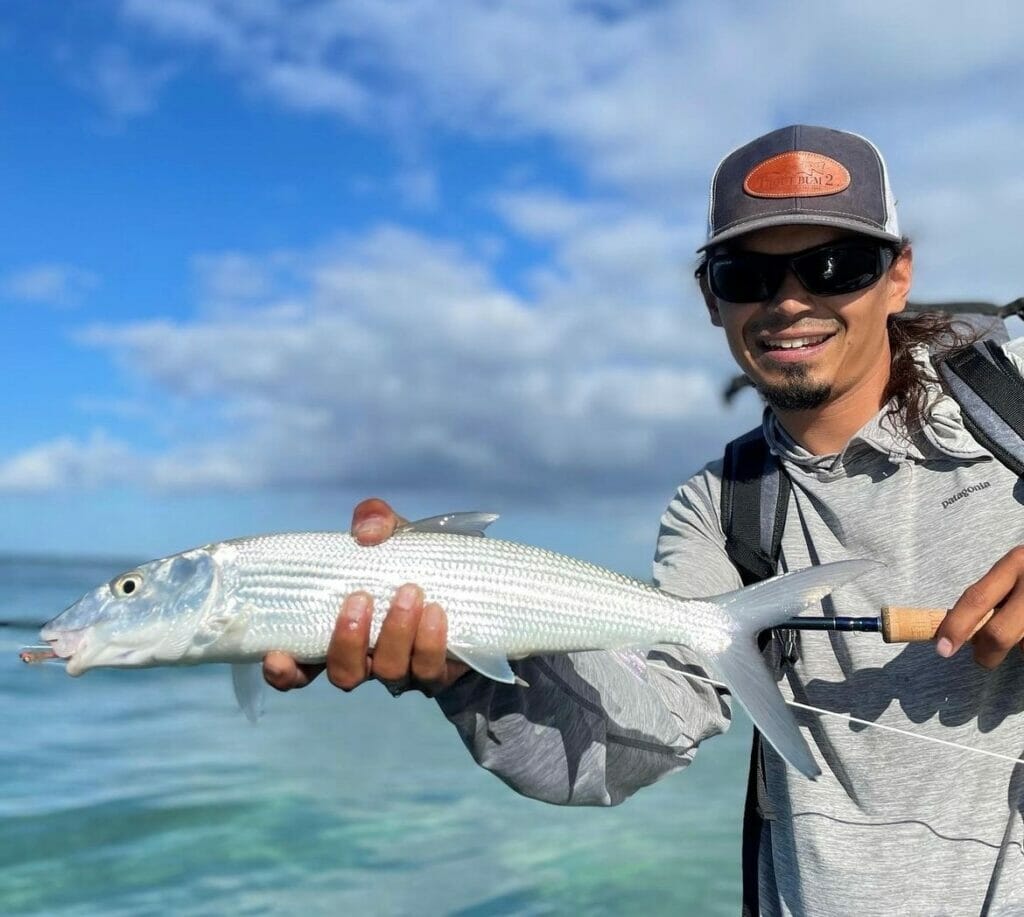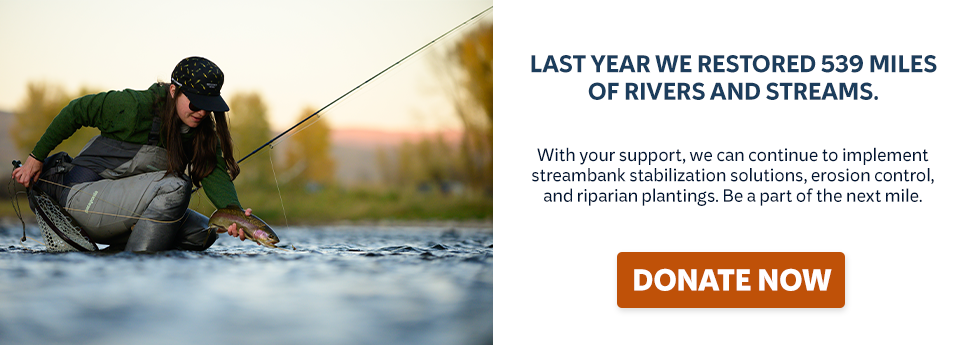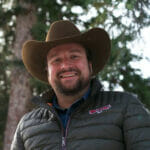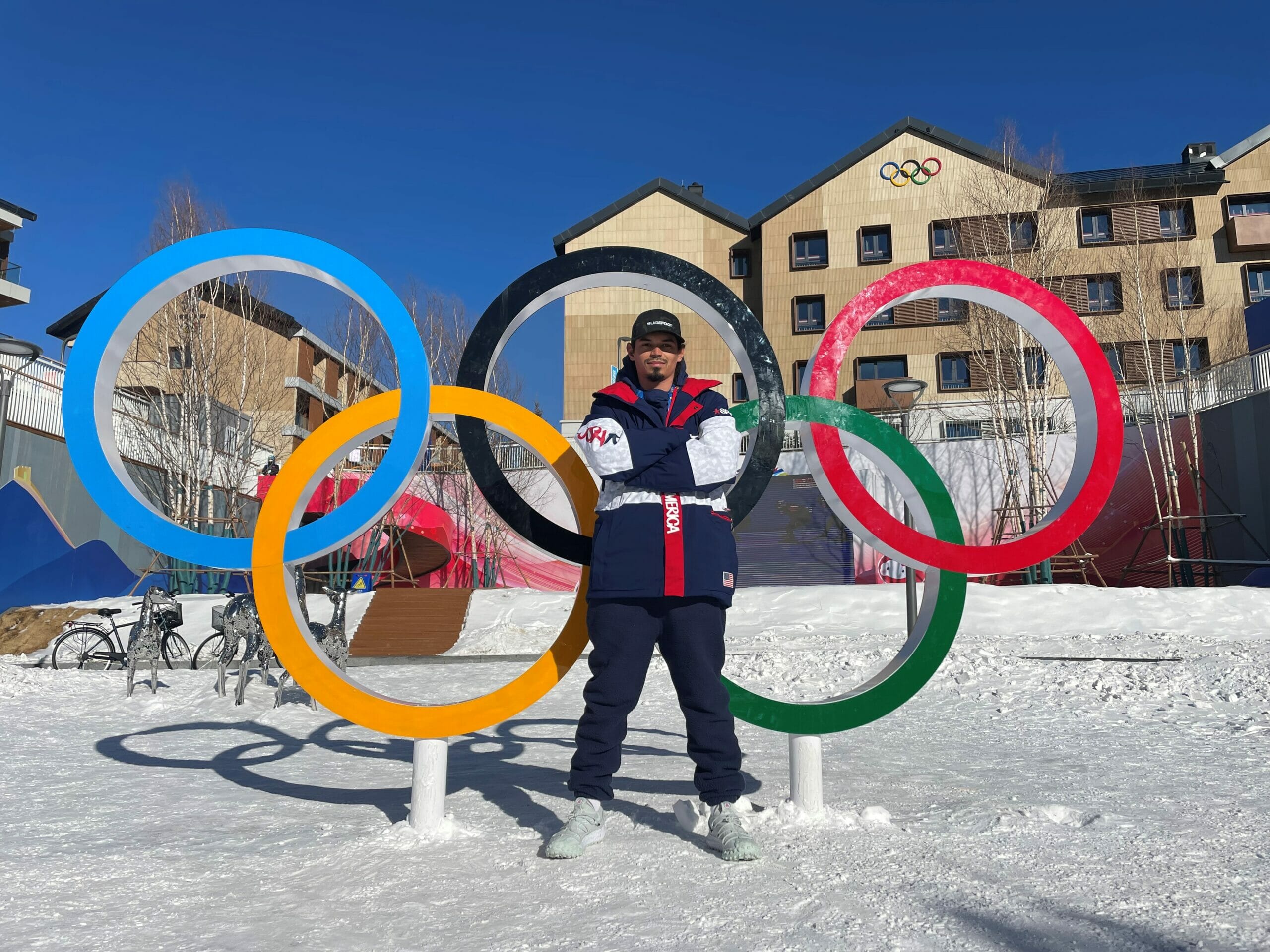A guide to fishing on work trips and tackling conservation projects close to home with 2x Olympian Eric Loughran
Editor’s Note: Trout Unlimited is inviting people from across the Colorado River Basin—ranchers, guides, elected officials, businesses, athletes, tourism officials—to talk with us about the West’s historic drought and how we can work together to meet the challenge of a world with less water. Welcome to the Fly That Binds
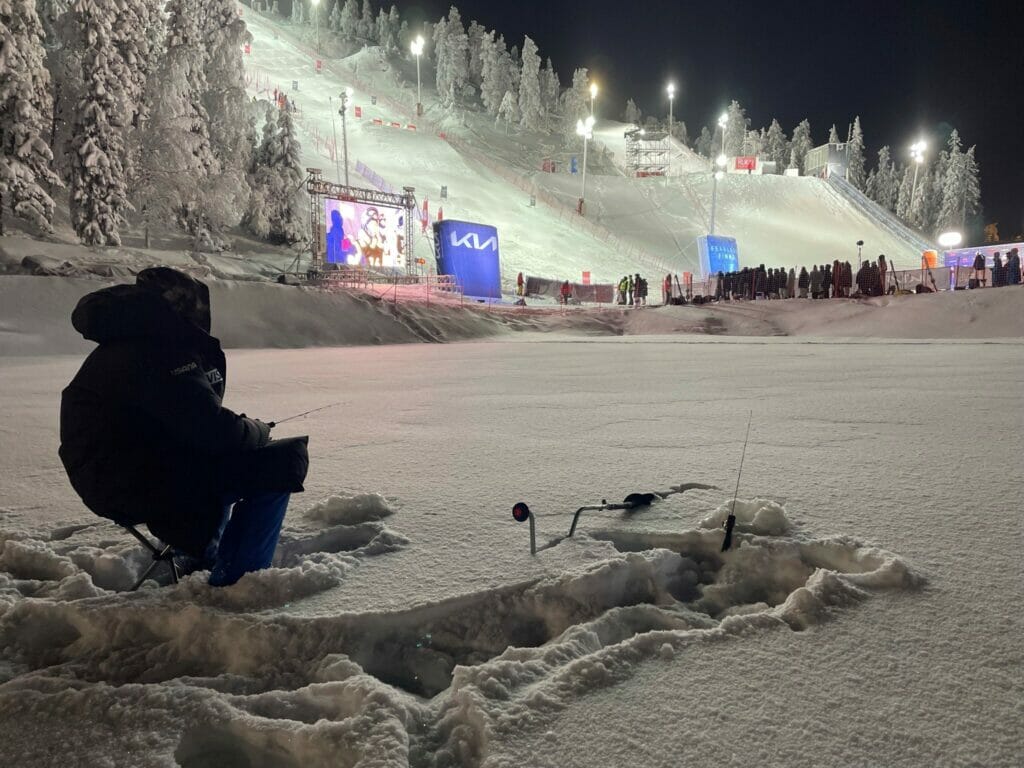
Everyone has a dream in life. Eric Loughran has accomplished two. Having competed for Team USA in the 2018 and 2022 Winter Olympics as an aerial skier, the Utah-resident likes to keep things flying – regardless of whether it is his body or a dry fly.
Perhaps that’s why he’s fit in so well in the mountains of Heber City, where he currently resides and is founding a business with two friends, Lakota Sky, which offers hunting and fishing retreats along the Duchesne River and teaches about conservation practices necessary to sustain the Colorado River Basin’s fragile ecosystem.
From his unique perspective as both a professional ski- and troutbum, we speak with Eric about the changing landscape of the Basin, what conservation efforts are needed to preserve some of the West’s most iconic rivers and how best to pack your fishing gear on work trips.
TU: Can you please explain to our audience how you managed to land not one, but two dream jobs?
EL: For sure! I grew up in New Hampshire and was very fortunate to have supportive parents who introduced my sister and I to freestyle skiing. I was about 6 years old when I started, and by 11, I could do flips without any training. After seeing me constantly trying more and more aerial tricks on my own, my parents then thought it’d be wise to get me some kind of training so I wouldn’t just hurtle myself off jumps anymore, so I attended a summer camp in Lake Placid at the Olympic Training Center (OTC) to learn the basics. After seeing me perform well at camp, coaches from the U.S. Ski Team asked if I wanted to stay the rest of the summer at the OTC. So, me being all of 12, I called my parents and said, ‘Hey, I’m just going to stay here the rest of the summer,” and thankfully they were supportive enough to allow me to go for it despite the concerns all parents have for their children at that age!
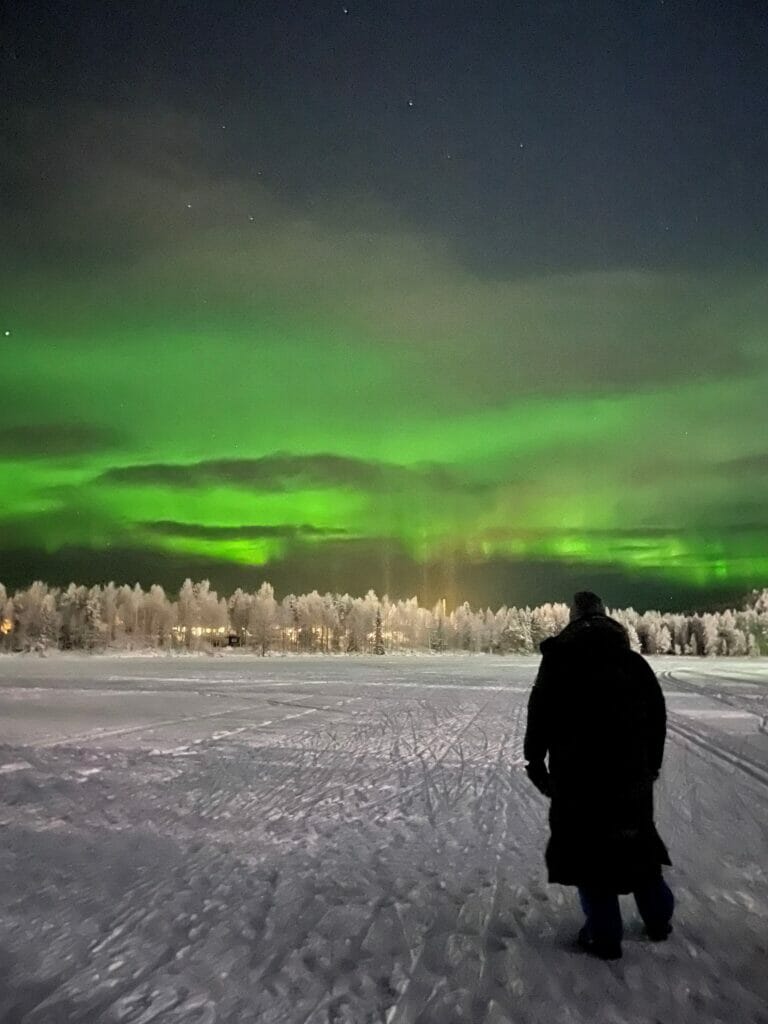
TU: So how did you end up in Utah?
EL: I lived at the OTC in Lake Placid for nearly 5 years, where I really had to grow up quickly because of the training demands. We would train really hard for weeks on end to be able to compete at that level and accomplish our goal of making it to the U.S. Ski Team, which I was fortunate enough to do at 16. Once I made the team, I moved out to Park City to be with other members of the team to train for the Olympics and other world-class events.
TU: What was your adjustment to Park City like?
EL: Most people don’t realize that even though you might be on a national or Olympic team that you still need to finance that dream. When I first got to Park City and started having to pay rent for the first time, I had a bunch of bottom-end jobs just to fund this lifestyle on top of my training and competition schedule. That said, there was a unique camaraderie that formed with other team members from that experience, as we were all in the same boat and trying to follow our dream. In fact, there was one point in time where basically the entire team worked at the same Pizza Hut.
TU: Would you say that was the secret sauce to Team USA’s success in the Winter Olympics then?
EL: You know, it could have been! In retrospect, it’s hilarious knowing there were all these world-class athletes and aerial experts throwing dough in the air after a long day of doing that to ourselves.
TU: So, at this point in your life, you’re either training or working non-stop to achieve your goal of making it to the Olympics, how did you find time to learn to fly-fish?
EL: It really was the result of getting the opportunity in Utah for the first time and the need to find an outlet for the demands of aerial skiing. There’s a large ex-Olympic and U.S. Ski and Snowboard Team community in Park City, and I was introduced to Cody Salrin and Matt Happe, who own Mayfly Guides. Cody competed and coached aerials and Matt is married to Shannon Bahrke, Olympic silver and bronze medalist in moguls. They took the time to teach me about how to become a fly-fishing guide in Utah in the summer to help continue to fund my Olympic dreams.
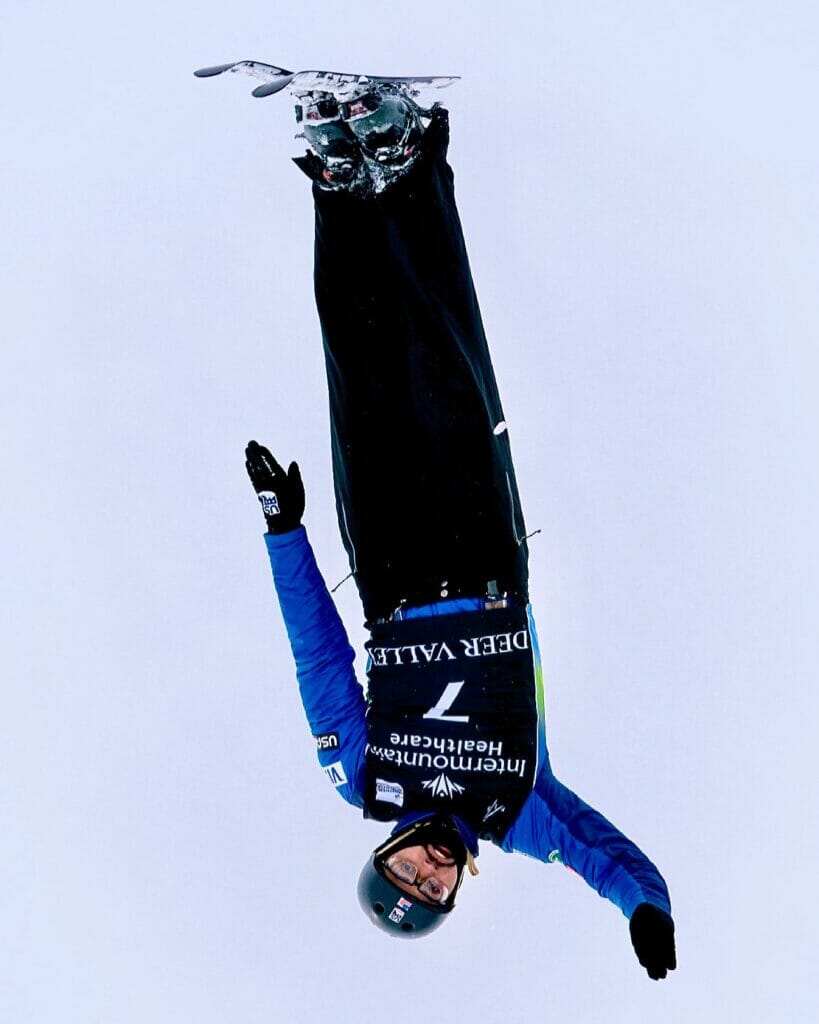
TU: From your perspective as both a professional skier and fishing guide, do you see a lot of crossover between the two groups and their desire to improve the state of the Colorado River Basin?
EL: Absolutely. We are all relying on the same water resources in the end, regardless of whether you prefer to glide on that water in the winter or float on it in summer. In fact, I often think about fishing when I am skiing and vice versa, as the need for more moisture and snowpack across the Basin has been top of mind for so many years now throughout this historic drought.
TU: Is there an example you use to convey this message when you’re introducing some of your team members to fly-fishing or when you’re out guiding?
EL: Right now, I’m in the process of starting a business with two friends of mine, Lakota Sky, which offers fishing trips on roughly a dozen miles of the Duchesne River and upwards of 20,000-acres for big game hunting. In fact, TU is working on completing a bank stabilization project on this property to repair about 15-feet of erosion that has happened in a field adjacent to the river. We started this business in response to the habitat losses and challenges we’ve seen all across Utah’s rivers over the past few years and the need to bolster our conservation efforts.
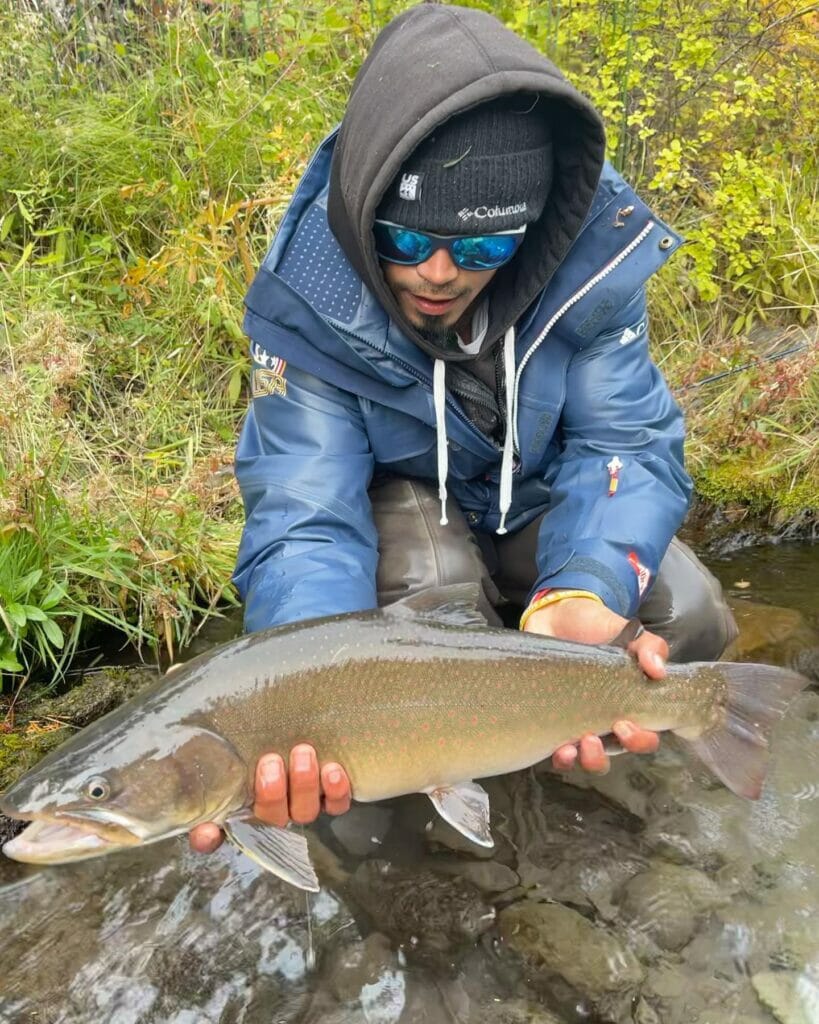
TU: How do you foresee Lakota Sky being able to accomplish this goal?
EL: Across Utah right now there’s a competition for resources. If you look at the local real estate market or the number of tourists visiting Utah every year now, the incentive to develop these cherished landscapes is strong. We’re seeing a lot of new housing developments and the pressure on our public waters has dramatically increased since I have been here. Part of our desire at Lakota Sky is to work closely with neighboring Tribal partners and the landowners, Young Living Skyrider Wilderness Ranch, to really restore and enhance this section of the Duchesne River for the betterment of the entire watershed. It’s going to take collaboration and compromise across the entire watershed to make sure these vital resources continue for future generations.
TU: As a private enterprise, how does that better our public access and waters that are under increasing amounts of pressure?
EL: I’m a major proponent of our public lands and increasing access to our waters. I’ve guided all kinds of waterways across Utah and the fact of the matter is they just need our help. As I mentioned above, fish don’t recognize who the landowner is on a stretch of river, just whether there is suitable habitat or not. We need to start thinking about our conservation efforts in a comparable manner, because whether the watershed is on public or private land, it all flows downstream and impacts the health of the entire river. We’re really proud to be working so closely with local Tribal partners and the Skyrider Ranch to be working on conservation projects like the bank stabilization project TU is starting this month. So, while we’re a new outfitting and guiding business, our goal is really to use this land to teach people about conservation and introduce new people to the sport and hopefully get them hooked on fishing and the outdoors. We’re trying to make this stretch of water more accessible for trips and people who fish, so we’re willing to accommodate innovative ideas and partners to accomplish that, as well.
TU: Speaking of different waters you’ve fished; do you have any tips for our members on how to make the most of their work trips and pack their fishing gear?
EL: Absolutely! I’ve used fishing as an outlet for the stress of competition. It’s not uncommon to see teammates or competitors lose sleep or have anxiety before an event, and fishing has been a way to keep my mind free and body loose before I have to perform on the slopes. In fact, I’ve even gotten teammates involved in fishing before events because I realized I could easily pack a manual ice auger into my ski bag and bring it with me for those more frozen destinations like Belarus or Kazakhstan. Part of the fun – whether ice or fly-fishing – is figuring out how to navigate their public water and license systems in foreign countries. It also really makes you appreciate what we have here at home and our collective need to protect and restore our amazing lands and waters.
TU: Any concluding thoughts for our members?
EL: Always pack a rod and find some water on your work trips. It leads to great experiences, meeting new people and opportunities to engage with the local culture. If I can do it, so can you!
